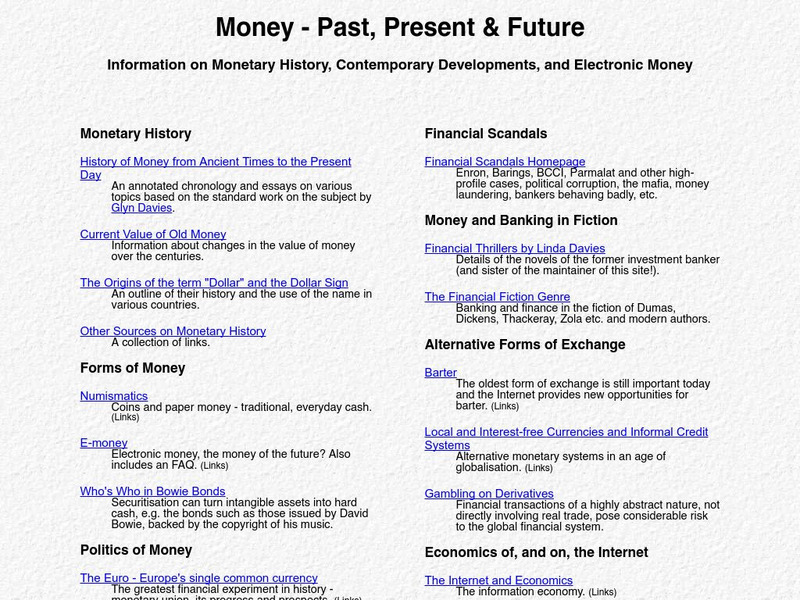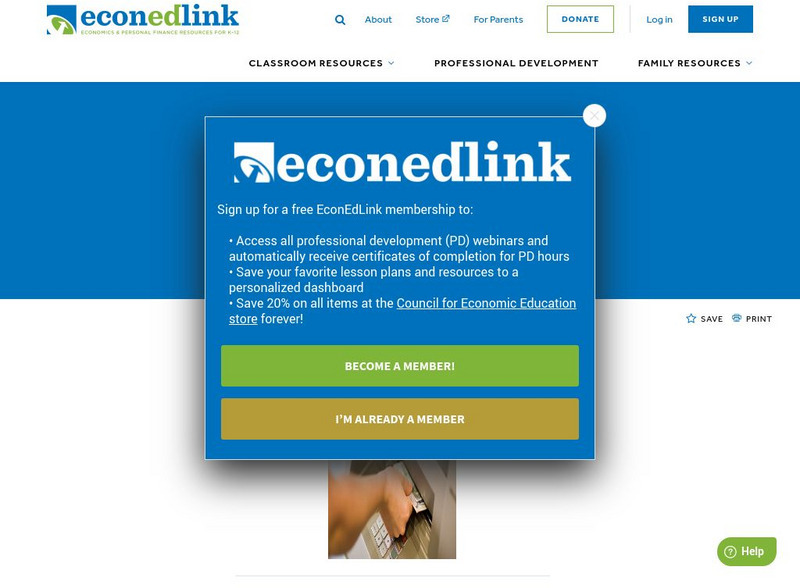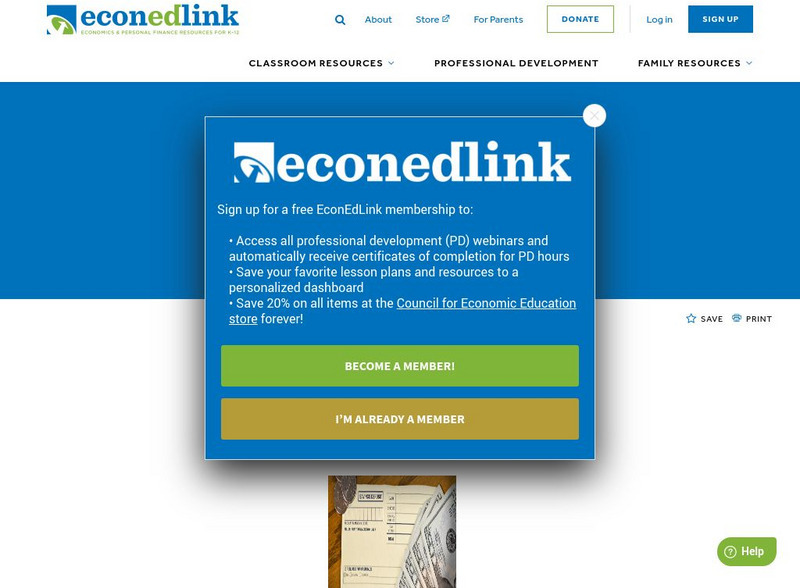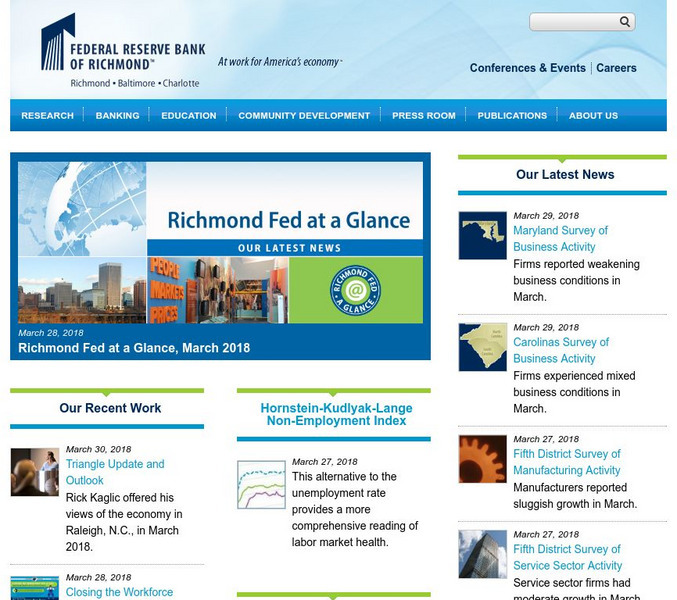Texas Education Agency
Texas Gateway: Ch. 13: Money and Banking: Critical Thinking Questions
This section provides study questions that require critical thinking skills based on the content of Ch. 13: Money and Banking from the Texas Gateway AP Macroeconomics online text.
Texas Education Agency
Texas Gateway: Ch. 13: Money and Banking: How Banks Create Money
By the end of this section, you will be able to do the following: Utilize the money multiplier formulate to determine how banks create money, analyze and create T-account balance sheets, evaluate the risks and benefits of money and banks.
Texas Education Agency
Texas Gateway: Ch. 13: Money and Banking: Key Concepts and Summary
This section summarizes the key concepts presented in Ch. 13: Money and Banking from the Texas Gateway AP Macroeconomics online text.
Texas Education Agency
Texas Gateway: Ch. 13: Money and Banking: Key Terms
This is a list of key terms and definitions covered in Ch. 13: Money and Banking from the Texas Gateway AP Macroeconomics online text.
Texas Education Agency
Texas Gateway: Ch. 13: Money and Banking: Self Check Questions
This section provides self-check study questions to aid in understanding the content of Ch. 13: Money and Banking from the Texas Gateway AP Macroeconomics online text.
Texas Education Agency
Texas Gateway: Ch. 13: Money and Banking: Problems
This section features three problems to solve pertaining to the content of Ch. 13: Money and Banking from the Texas Gateway AP Macroeconomics online text.
Texas Education Agency
Texas Gateway: Ch. 13: Money and Banking: Review Questions
This section provides review questions to aid in studying the content of Ch. 13: Money and Banking from the Texas Gateway AP Macroeconomics online text.
Texas Education Agency
Texas Gateway: Chapter 13: Money and Banking: Defining Money by Its Functions
By the end of this section, you will be able to do the following: Explain the various functions of money and contrast commodity money and fiat money.
Texas Education Agency
Texas Gateway: Ch. 13: Money and Banking: Measuring Money: Currency, M1, and M2
By the end of this section, you will be able to do the following: Contrast M1 money supply and M2 money supply and classify monies as M1 money supply or M2 money supply.
Texas Education Agency
Texas Gateway: Chapter 13: Introduction to Money and Banking
In this chapter, you will learn about the following: Defining money by its functions; Measuring money-currency; M1, and M2; The role of banks; and How banks create money.
Other
Roy Davies: Money
Explore the past, present, and future of money. Learn about exchange rates, money forms, banking, and more.
Texas Education Agency
Texas Gateway: Ch. 13: Money and Banking: The Role of Banks
By the end of this section, you will be able to do the following: Explain how banks act as intermediaries between savers and borrowers; evaluate the relationship between banks, savings and loans, and credit unions; and analyze the causes...
Federal Reserve Bank
Federal Reserve Bank of Atlanta: Classroom Economist: History of Central Banking
Explores the early history of central banking in the United States, describing the evolution of banking from the late 1700s through the Great Depression, with a special focus on the Fed's role in the Depression.
Independence Hall Association
U.s. History: First Bank of the United States
This page from the IHA provides the history of and facts about the First Bank of the United States.
PBS
Pbs: Count on It!: Episode 205 Blossom and Snappy Go to the Bank, Part I
Blossom and Snappy learn about money and banking. The puppets want to buy something for Robbie for her birthday, so they decide to do some chores to earn money. Once they've earned some money, they go to the bank to open up bank accounts.
Council for Economic Education
Econ Ed Link: The Story of Jack and the Bank Stalk
Fairy tales have always been used to give lessons about life. The story of Jack and the Bean Stalk is a good lesson about the importance of knowing about money and banks. The story of Jack asks the question, "What is money?"
Council for Economic Education
Econ Ed Link: You Can Bank on This! (Part 1)
This is the first of four lessons on banking for elementary students. This lesson plan provides the students with information on banking; it also allows them to try out some procedures for thinking about money and banking. There is a...
Smithsonian Institution
National Museum of American History: Legendary Coins and Currency
Archived images of coins from a beautiful online exhibition on the history of money.
Council for Economic Education
Econ Ed Link: Banks, Bankers, Banking
This lesson is a simulation of opening a bank. Students are assigned various roles to play within the banking business. Students learn about the role banks play in a market economy.
Federal Reserve Bank
Federal Reserve Bank of Philadelphia: Money in Colonial Times
Comprehensive overview of the development of money in the American colonies. Topics covered include colonial coins and paper money, national coinage, copper, silver, and gold coins, and Liberty and the eagle.
Federal Reserve Bank
Federal Reserve Bank of Atlanta: Classroom Economist: What Is Money?
In this edition, the Classroom Economist offers a close look at money-its definition, the problem it solves, what fiat money accomplishes, and how the Yapese used giant wheels of stone for money.
Teachnology
Teachnology: Money Teaching Theme
Money Teaching Theme provides an excellent collection of free sample worksheets, teacher resources, lesson plans and interactive media for the elementary grades.
Other
U.s. Treasury: History of u.s. Currency
This page provided by the Bureau of Engraving and Printing gives the the history of paper money from the colonial notes in 1690 to the currency redesigns of 1996 and 2003.
Other
Federal Reserve Bank of Richmond
This page from the Federal Reserve Bank of Richmond provides access to information in the following categories: General Information, Monetary Policy & Business Conditions, Financial Services, Banking, Community Affairs, Consumer...




















